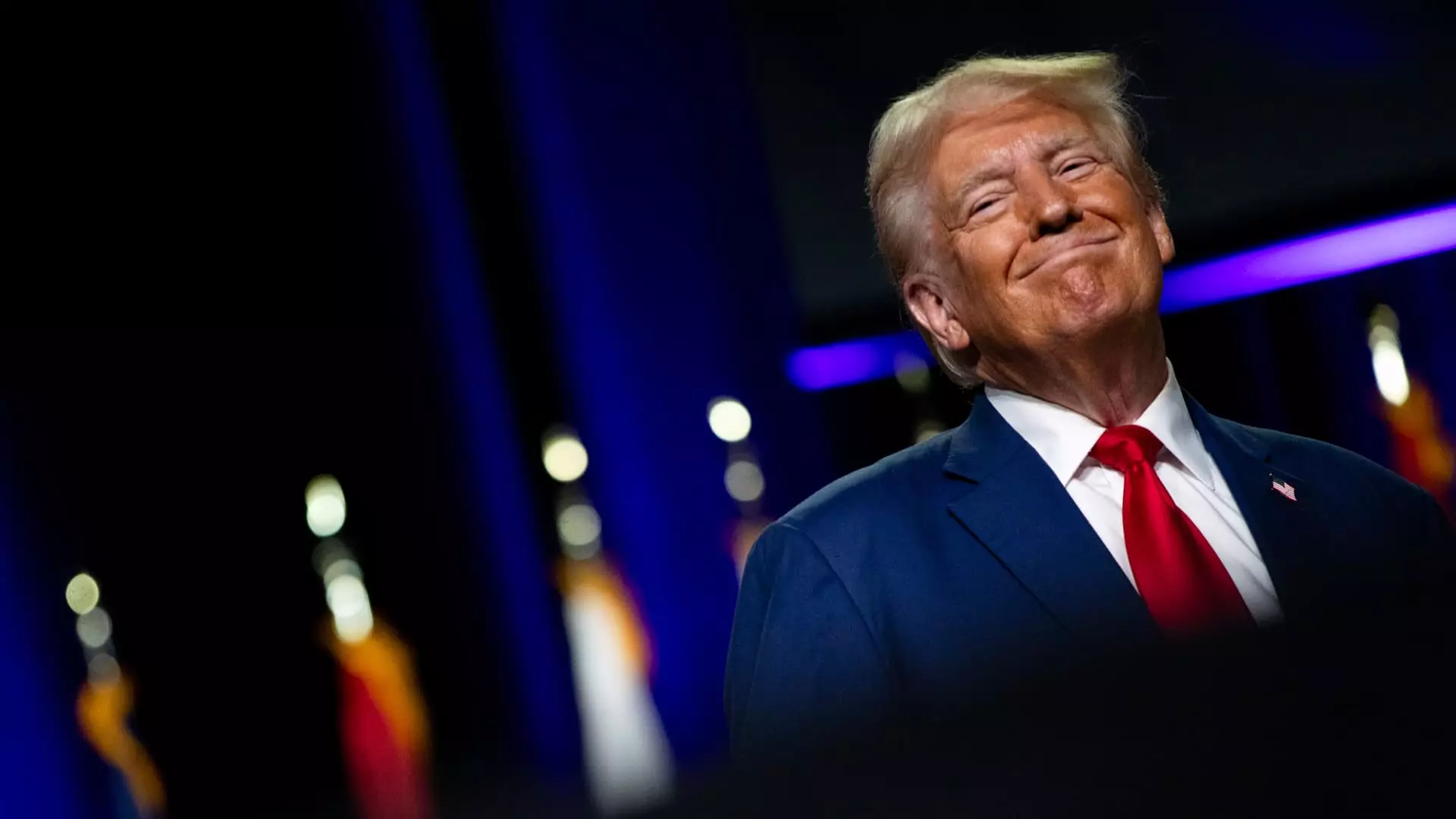The intersection of technology and politics often produces a complex narrative, filled with intrigue, rivalry, and unexpected alliances. As the political landscape evolves, particularly with the forthcoming presidency of Donald Trump, major tech figures like Mark Zuckerberg, Jeff Bezos, and Sam Altman are strategically navigating their relationships with the incoming administration. This article delves into the intricate web of donations, past conflicts, and future implications involving these tech magnates and their affiliations with Trump as he gears up for a potential return to the Oval Office.
Recent developments surrounding Trump’s inauguration fund have revealed a shift in the attitude of several tech companies. Leaders from Amazon, Meta, and OpenAI are suddenly finding common ground with a figure they once criticized. Each organization has pledged $1 million towards Trump’s inaugural events, signaling a possibly strategic maneuver to align with the new administration. Altman expressed clear intentions, stating, “President Trump will lead our country into the age of AI,” indicating his desire to contribute to the country’s competitiveness in emerging technologies.
It is crucial to consider that such contributions come despite a history of hostility. Trump’s administration was marked by aggressive criticism of major tech companies, and it appears that the digital landscape may be bracing for a new chapter of regulatory scrutiny under his leadership.
The friction between Trump and figures like Bezos and Zuckerberg has been ongoing and premeditated. Trump has not hesitated to target both Amazon and Facebook. He has accused Bezos of misusing the U.S. Postal Service to the detriment of tax regulation, while Zuckerberg has been labeled with derogatory nicknames reflecting Trump’s disdain.
The animosity did not go unreciprocated. For instance, Bezos responded to Trump’s criticisms with biting remarks, even jesting about launching the former President into space via his space exploration venture, Blue Origin. Such exchanges indicate that the relationship has been defined by opportunism and personal vendettas—yet with financial stakes now at play, it seems an era of reconciliation could be waning on the horizon.
Trump’s nominations for key roles within his new administration further indicate a potential focus on antitrust issues for Big Tech. Appointing Gail Slater, a known advisor regarding tech policies, to lead the Department of Justice’s antitrust division demonstrates Trump’s commitment to addressing perceived abuses of power in the tech sector. With his previous remarks about the suppressive actions of these firms against competition, it becomes evident that the tech titans’ contributions could be efforts to mitigate potential regulatory backlash.
As Trump seeks resolve with technology titans, it is crucial to examine how these developments will impact the regulatory framework surrounding tech. During his first term, several tech giants faced considerable pressure. Trump’s victorious return could ignite a more pronounced campaign against tech monopolies or, paradoxically, invite more collaboration as these companies seek to influence policy favorable to their corporate ambitions.
The division in the tech industry becomes particularly salient in light of Musk’s legal dispute with Altman regarding OpenAI. Once collaborators in the venture, their diverging paths reflect a rift that underscores the competitive nature of technological advancement. Musk’s new endeavor, xAI, stands in stark contrast to the mission of OpenAI under Altman’s stewardship, raising questions about the efficacy of collaboration and competition within the AI sector.
Musk’s significant contributions to Trump’s political campaign have now bathed the tech landscape in layers of influence. If successful, Musk’s role within the administration could potentially shape AI regulations in a way that aligns with his business interests—a prospect that alarms many given the currently heated atmosphere surrounding tech policy.
As relationships between technologists and politicians evolve, the coming months will be crucial in determining how these alliances hold up under scrutiny. Given the historical enmity and the starkly contrasting views between Trump and the tech industry, the region of cooperation and conflict will likely be molded by the political winds that blow through Washington D.C.
Ultimately, as major figures in tech take steps to court favor with the incoming administration, it raises pressing questions about accountability, ethics, and the essence of democracy. The next chapter will likely unfold against a backdrop of both opportunism and pragmatism as powerful entities on both sides aim to advance their respective agendas amidst growing uncertainty. The resolution of these complex dynamics will shape not only the future of AI and technology regulation but also the relationships that define modern power.

